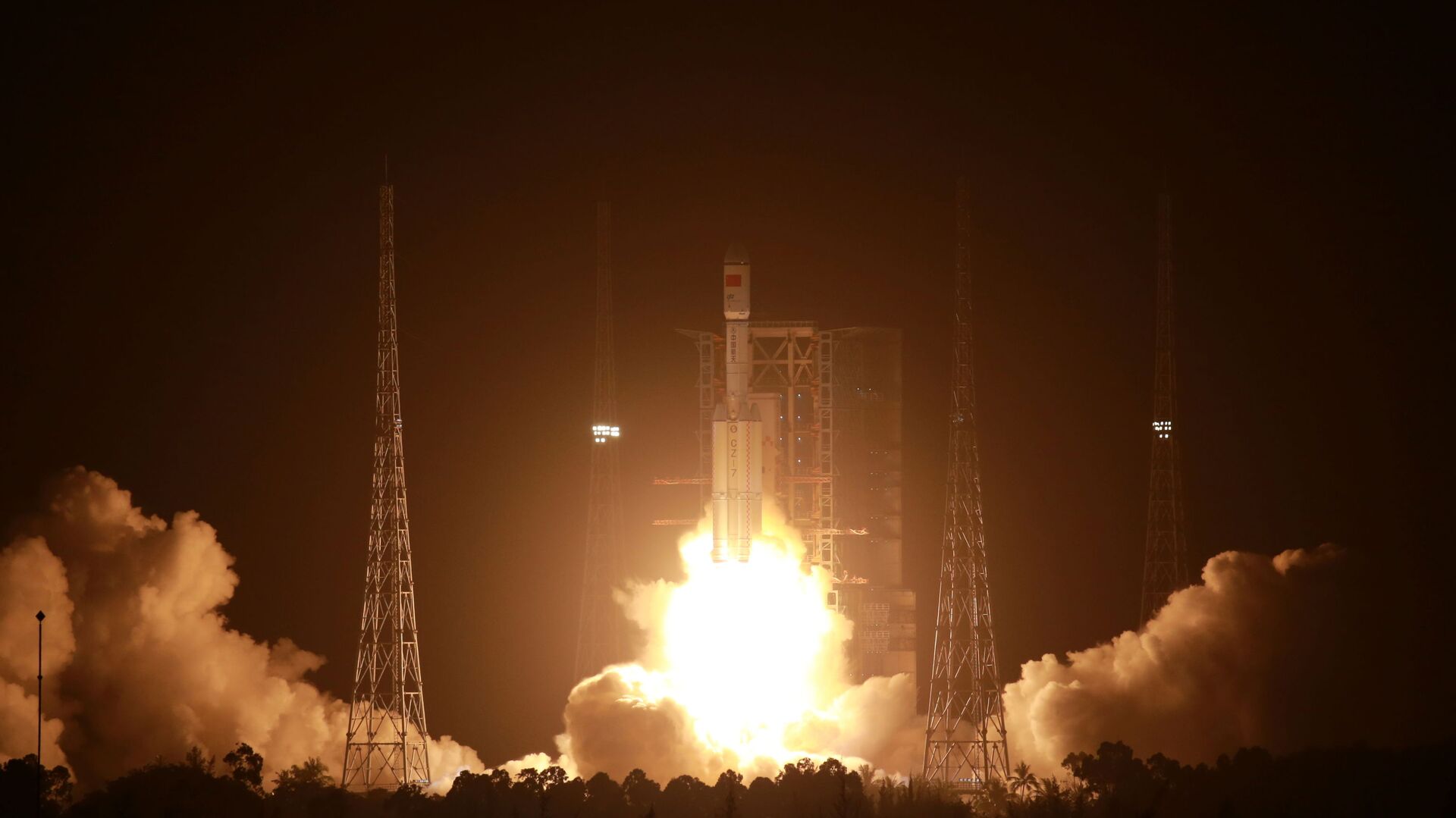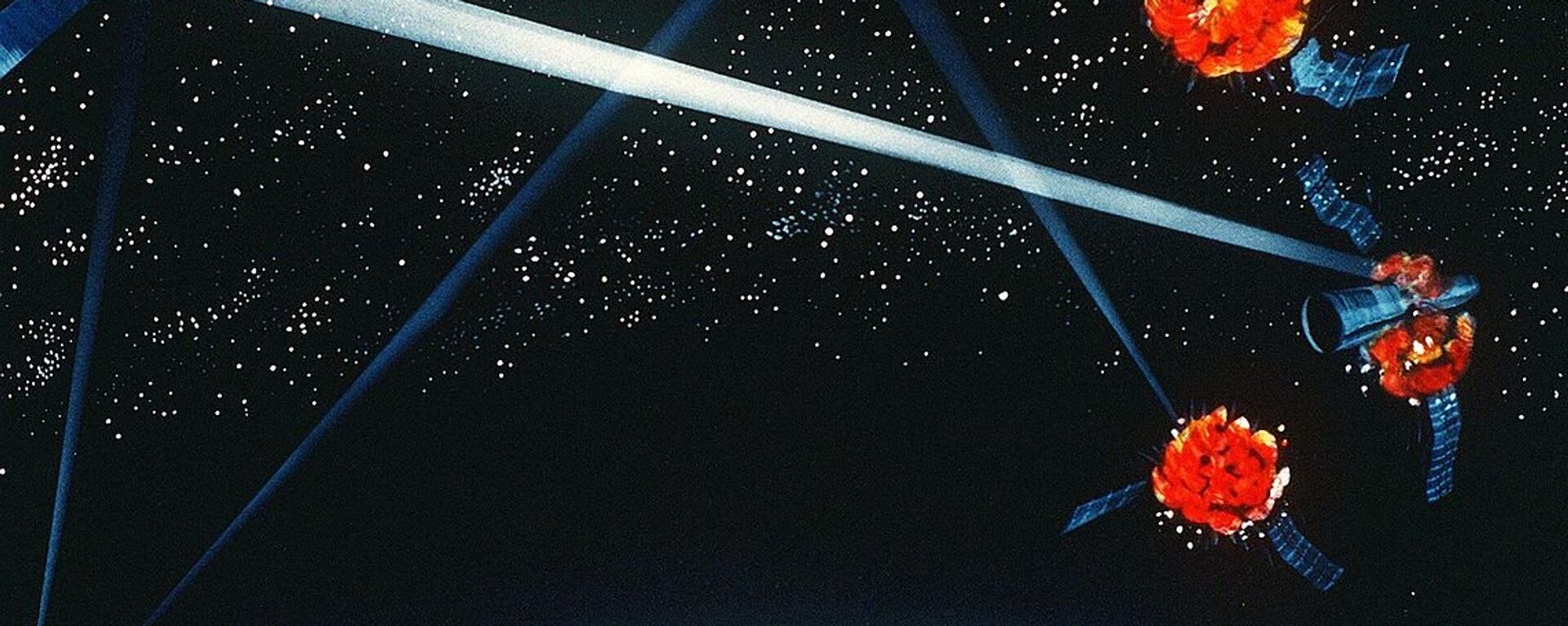https://sputnikglobe.com/20211009/uk-national-space-strategy-minister-wants-domestically-made-satellites-to-compete-with-us-china--1089790536.html
UK National Space Strategy: Minister Wants Domestically-Made Satellites to Compete With US, China
UK National Space Strategy: Minister Wants Domestically-Made Satellites to Compete With US, China
Sputnik International
The British government unveiled the country's National Space Strategy in late September, promising to build up "one of the most innovative and attractive space... 09.10.2021, Sputnik International
2021-10-09T10:57+0000
2021-10-09T10:57+0000
2023-05-28T15:16+0000
us
russia
china
news
strategy
satellite
world
space
united kingdom (uk)
https://cdn1.img.sputnikglobe.com/img/07e5/05/1d/1083029790_0:161:3071:1888_1920x0_80_0_0_e9438fff8c376b7c37b61839c9f9c18c.jpg
In an interview with Sky News, UK Science Minister George Freeman touched upon the country's newly rolled out National Space Strategy, stressing that the government injecting half a billion pounds ($680 million) into Britain's space industry aims to help the sector compete with major rivals from across the globe.The minister insisted that injecting money into the space industry and collaborating with European allies would help the government increase its strategic clout worldwide and turn the country into a "science superpower".Freeman referred to part of the National Space Strategy which stipulates boosting the UK's ability to not only manufacture space satellites but also launch them."I want to make sure that when we do it [the satellite], that it's an exemplar of what we've got here in the UK. It would be a shame, I think, to hit the target date and rely on overseas providers", he pointed out.Sky News reported that the UK launching a space satellite will most likely depend on how much money is left for Freeman's department in the comprehensive spending review, which is due to be released later this month.Key priorities in terms of spending include health and social care, COVID-19 recovery, and cutting carbon emissions to net-zero by 2050.The comments come almost two weeks after the British government presented the UK's National Space Strategy which aims to turn the country into a major global space power.According to the government, the strategy outlines four "key pillars which will support the achievement of that ambition", such as "unlocking growth in the space sector, collaborating internationally, growing the UK as a science and technology superpower", and "developing resilient space capabilities and services".US Rolls Out New Defence Space Strategy Britain's push for space clout was preceded by the Pentagon rolling out America's new Defence Space Strategy, which, in particular, alleged that China and Russia "present the most immediate and serious threats to US space operations".The strategy is designed to maintain the countty's supremacy in space and provide relevant capabilities to US and allied forces, including the Space Force, the newest branch of the US Armed Forces. Its mission, according to its website, is to "protect US and allied interests in space and to provide space capabilities to the joint force".Sergei Savelyev, the deputy head of Russian State Space Corporation Roscosmos warned last year that Washington's plans to militarise space "may jeopardise the already fragile relations of the countries" in the space sector.He was echoed by the Russian president's spokesman, Dmitry Peskov, who emphasised that Moscow has always been committed to the full demilitarisation of outer space. The Russian Foreign Ministry, in turn, warned against an arms race in space that it said could lead to the destruction of the existing security balance.
https://sputnikglobe.com/20210618/us-space-force-operations-chief-confirms-working-on-space-based-directed-energy-weapons-1083178576.html
russia
china
world
united kingdom (uk)
Sputnik International
feedback@sputniknews.com
+74956456601
MIA „Rossiya Segodnya“
2021
Oleg Burunov
https://cdn1.img.sputnikglobe.com/img/07e4/09/0b/1080424846_0:0:2048:2048_100x100_80_0_0_3d7b461f8a98586fa3fe739930816aea.jpg
Oleg Burunov
https://cdn1.img.sputnikglobe.com/img/07e4/09/0b/1080424846_0:0:2048:2048_100x100_80_0_0_3d7b461f8a98586fa3fe739930816aea.jpg
News
en_EN
Sputnik International
feedback@sputniknews.com
+74956456601
MIA „Rossiya Segodnya“
Sputnik International
feedback@sputniknews.com
+74956456601
MIA „Rossiya Segodnya“
Oleg Burunov
https://cdn1.img.sputnikglobe.com/img/07e4/09/0b/1080424846_0:0:2048:2048_100x100_80_0_0_3d7b461f8a98586fa3fe739930816aea.jpg
us, russia, china, news, strategy, satellite, world, space, united kingdom (uk)
us, russia, china, news, strategy, satellite, world, space, united kingdom (uk)
UK National Space Strategy: Minister Wants Domestically-Made Satellites to Compete With US, China
10:57 GMT 09.10.2021 (Updated: 15:16 GMT 28.05.2023) The British government unveiled the country's National Space Strategy in late September, promising to build up "one of the most innovative and attractive space economies in the world".
In an interview with Sky News, UK Science Minister George Freeman touched upon the country's newly rolled out National Space Strategy, stressing that the government injecting half a billion pounds ($680 million) into Britain's space industry aims to help the sector compete with major rivals from across the globe.
"The Americans are chucking huge money at this. The Chinese are chucking huge money at it. The Russians have got their own programme", Freeman pointed out.
The minister insisted that injecting money into the space industry and collaborating with European allies would help the government increase its strategic clout worldwide and turn the country into a "science superpower".
"There are a lot of nations - Japan, Australia, the Philippines, who want to be secure in space, and don't want to be vulnerable to Russia or the Chinese or bad actors. They want to be part of a network, a Commonwealth, if you like, of space scientists and businesses that are operating at the highest values. And I think that's a big opportunity for the UK", he claimed.
Freeman referred to part of the National Space Strategy which stipulates boosting the UK's ability to not only manufacture space satellites but also launch them.
"I want to make sure that when we do it [the satellite], that it's an exemplar of what we've got here in the UK. It would be a shame, I think, to hit the target date and rely on overseas providers", he pointed out.
Sky News reported that the UK launching a space satellite will most likely depend on how much money is left for Freeman's department in the comprehensive spending review, which is due to be released later this month.
Key priorities in terms of spending include health and social care, COVID-19 recovery, and cutting carbon emissions to net-zero by 2050.
Dwelling on this during the interview, the minister stressed that the argument he has made to Treasury, is that "this isn't frittering money on some sort of space play game".
The comments come almost two weeks after the British government presented the UK's National Space Strategy which aims to turn the country into a major global space power.
According to the government, the strategy outlines four "key pillars which will support the achievement of that ambition", such as "unlocking growth in the space sector, collaborating internationally, growing the UK as a science and technology superpower", and "developing resilient space capabilities and services".
US Rolls Out New Defence Space Strategy
Britain's push for space clout was preceded by the Pentagon rolling out America's new
Defence Space Strategy, which, in particular, alleged that China and Russia "present the most immediate and serious threats to US space operations".
The strategy is designed to maintain the countty's supremacy in space and provide relevant capabilities to US and allied forces, including the Space Force, the newest branch of the US Armed Forces. Its mission, according to its website, is to "protect US and allied interests in space and to provide space capabilities to the joint force".
Sergei Savelyev, the deputy head of Russian State Space Corporation Roscosmos warned last year that Washington's plans to militarise space "may jeopardise the already fragile relations of the countries" in the space sector.
He was echoed by the Russian president's spokesman, Dmitry Peskov, who emphasised that Moscow has always been committed to
the full demilitarisation of outer space. The Russian Foreign Ministry, in turn, warned against an arms race in space that it said could lead to the destruction of the existing security balance.



